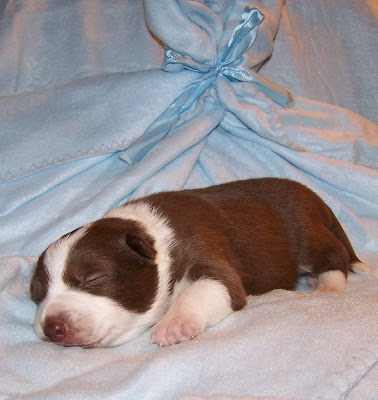So I find myself often amazed by Stanley and his speech and vocabulary. While I always expected him to pick up new words, phrases and sounds and use them liberally, I underestimated his ability to understand and devise provisional constructs that demonstrate alarming clarity.
For instance, he appears to have a good understanding of names.
He knows:
Stanley
Kappy (previous companion bird)
Trevor (previous owner)
Paddy
Zora
Lucy
Sweetie
Dog
Doggies
And he knows a great deal of action phrases and questions:
Want some water?
Are you out of water?
Want to take a bath?
Step up.
Where are you?
Want to step up?
Want to go outside?
Want to come inside?
What time is it?
Quiet, shhhh.
Want a bite?
Want to pet?
Want to try it?
Want a scritch?
No bite. (came with that one)
Lie down.
Come here.
Come over here.
Come see me.
See you then.
See you later.
I'll be back.
Be home soon.
See you soon.
Then there are action words:
Bark, barking
Jump (no idea, did not learn that here)
Step up
Bedtime
Where is...?
He knows negative modifiers:
No
Stop
Locations:
Here
There
And exclamations:
Good boy!! (tweet!)
mmmm it's good!
Wow!
Sweet!
Neat!
Dude!
Awesome!
What?!
And a variety of other phrases:
Uh-huh
Hello
Alright
There you go
Don't worry
It's fine
You're fine
Pick up
Have fun with that
Hi
Yep
Not sure
Sure
Bye
Oh, ok
(at least 10 different laughter sounds)
Sounds good
And dozens upon dozens of beeps, water drips, animal noises, whistles, video game noises, etc etc.
He could certainly learn all of these things through mimicry. The strange thing is that once he learns a phrase, he deconstructs and reconstructs the constituent parts into new phrases we have never said. Phrases that make perfect sense from a grammar perspective.
For instance, he will add names to almost any phrase, in an appropriate way.
He already knew how to say "
Stanley, step up" when he arrived here. He quickly learned Zora, Paddy, Lucy and "Sweetie" (what Bruce and I call one another) when he moved here.
He then began constructing new phrases, such as "
Lucy, step up." We would never say step up to Lucy, she is not a bird. He just substituted the
name in. Why not substitute another word, like "Water, step up?" I was completely astonished the first time I heard him say this. He does this all the time.
Another example: in the evening, we have to encourage Paddy to go outside as she is night-blind and does not like it. So while the rest of the dogs go out on their own, we have to ask her "
Come on, Paddy, time to go outside."
Stanley soon began saying that. But what came next was very interesting: "
Come on, Sweetie," and "
Zora, time to go outside." Neither of these phrases are things we say at home. They are constructs Stanley made substituting names and other parts of speech appropriately into new language.
Another example: Lucy is often told to lie down if she is bothering the bird. Stanley quickly learned to say "
Lucy, lie down." (which she ignores) But our other dogs are all trained to the word "Drop" for lying down. Stanley quickly began saying things we never say, such as"
Zora, lie down" and "
Paddy, lie down," and even, "
Stanley, lie down." For goodness sake, that sounds like demonstrated understanding of names to me... While it is clear he does not know what lie down means, it is clear he realizes combining the generalized concept of a name with it is correct. Intense.
However, there are some things he definitely learns by association. Magick went through a phase where she was very worried about Stanley. She still worries about him some when he does his crazy bird routine flapping and crashing his toys around with glee. When he would flap and crash, we would say to Magick, "It's alright, don't worry." Pretty soon, Stanley would say, "
It's alright. You're fine, don't worry." right before he began his flapping routine.
So what? Well, he began communicating to us that he intended to begin his flapping routine. But even more, he added the central part of the phrase - you're fine - all on his own. He knew how to say "You're fine" separately, but we did not use that sentence in total. He constructed it, with correct context, all on his own.
In a separate example, he extracts meaning from listening to us talk. For instance, if Magick is barking at something I don't see, I will commonly ask my husband "What is she barking at?" To which he is almost always forced to reply "I dunno." ::snicker:: Then we will both often say, "Magick, quiet."
The other day, Magick barked and Stanley said, "
Dogs, no bark!" We have never used that phrase, nor even the phrase "no bark" in our house. Mind boggling. Worse yet, he recently began making barking noises himself, followed by "
Quiet! Shhh!" And perhaps worst of all, he will occasionally make a noise that never fails to make Magick bark. He has taken to saying, "
No bark!" and then making the infuriating beep. Of course, Magick then barks. Holy cow.
I could go on and on and on about how much this bird amazes me, but you'd all be bored to tears. Suffice it to say I am really glad he does not have thumbs!
While I do not think he comprehends a majority of the speech around him, I am consistently astonished by the way he picks out meaning from everyday language, and then reconstructs what words he does have into phrases that largely make sense. Phrases he has never heard before.
Smart bird. Except when he tries to remove the buttons from the remote.








































